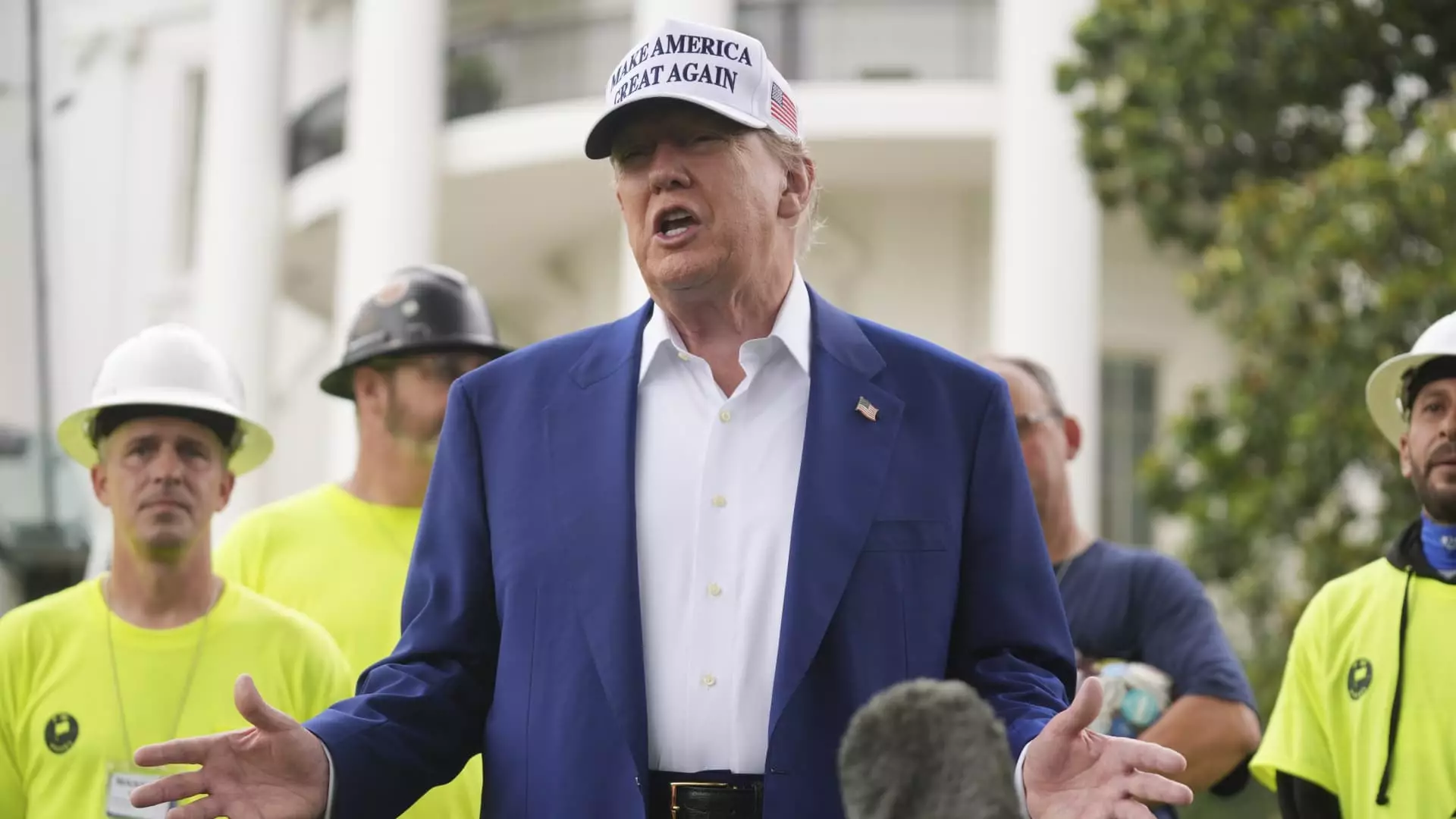In an alarming display of political drama that transcends traditional rhetorical boundaries, former President Donald Trump has unleashed yet another tirade against Federal Reserve Chair Jerome Powell. Hours before a crucial announcement on interest rates, Trump labeled Powell as “stupid,” a scathing remark that crystallizes the erratic and emotionally charged relationship between the administration and the central bank. This is not merely a spat over economic policy; it represents a deep-seated ideological clash between personal vendetta and institutional integrity. By undermining the credibility of the Federal Reserve, Trump reveals his willingness to exploit economic governance for his political narrative.
Trump’s comments reflect his ongoing disdain for Powell, whom he belittles while pushing for lower interest rates—a common demand among proponents of economic populism. Trump’s assertion that the borrowing rate should be slashed by at least two percentage points underscores a fundamental misunderstanding of economic indicators and the complexities of monetary policy. He suggests that the Federal Reserve is falling behind Europe, which has implemented multiple rate cuts, yet he oversimplifies the diverse economic contexts that inform these decisions. The operatic nature of his language raises questions: Is Trump genuinely invested in economic stability, or is he simply utilizing it as a tool in his personal crusade against perceived enemies?
The Risks of Undermining Monetary Independence
One of the most concerning aspects of Trump’s rhetoric is its potential to erode the independence of the Federal Reserve. Powell and his colleagues have repeatedly vowed to resist political pressure, and rightly so. A central bank that bows to political whims risks losing credibility and fostering economic volatility. Reports suggest that Trump’s administration is ramping up pressure on Powell, not just through direct criticism but also with the involvement of other administration officials like Vice President JD Vance, who seems to indulge in tactical maneuvering for political expediency.
Trump’s flirtation with the idea of appointing himself as the Federal Reserve Chair epitomizes a dangerous shift toward political control of economic policy. It evokes fears of crony capitalism, where decisions would be made not on empirical analysis or economic theory, but on whims and personal grudges. The very fabric of democratic governance is woven tightly with the principles of independence and accountability, and Trump’s candidacy for such a position signifies a profound disrespect for those values. Such a move would be catastrophic, not only for the economic landscape but also for public trust in vital institutions.
Economic Realities vs. Political Fantasies
When it comes to the realities of the economy, Trump’s cavalier dismissal of inflation concerns is both bewildering and dangerous. He argues that the increased interest rates are costing the nation “hundreds of billions” in financing costs. However, his upbeat rhetoric about inflation not being an imminent threat is starkly at odds with the concerns of economists. The juxtaposition of his political ambitions against the backdrop of fluctuating economic indicators reveals a self-serving narrative that ignores the complexities at play.
When Trump asserts that Powell “refuses to lower the Fed rate,” it reflects a complete misunderstanding of monetary policy dynamics. The Federal Reserve operates on a vast range of data and predictive models that account for inflation, growth, and global economic pressures. Powell’s cautious approach stems from the unsettled nature of the economy—exacerbated by the long-term implications of trade policies initiated by Trump himself. Rather than taking accountability for these policies, Trump’s rhetoric places the responsibility squarely on Powell’s shoulders, a classic deflection mechanism employed by populist leaders who seek scapegoats for their own failures.
As the nation approaches another pivotal moment in its economic journey, the stakes have never been higher. The relationship between political leaders and independent financial institutions like the Federal Reserve must be navigated with care and respect. In a world increasingly dominated by disinformation and populism, the ability to uphold principles of economic integrity stands as a bulwark against chaotic governance. Trump’s ongoing antagonism toward Powell not only highlights the fragility of this balance but reveals the broader implications of political meddling in economic discourse. As America seeks to attract stability and growth, it is crucial to foster an environment where informed economic stewardship prevails over theatrical political grandstanding.

